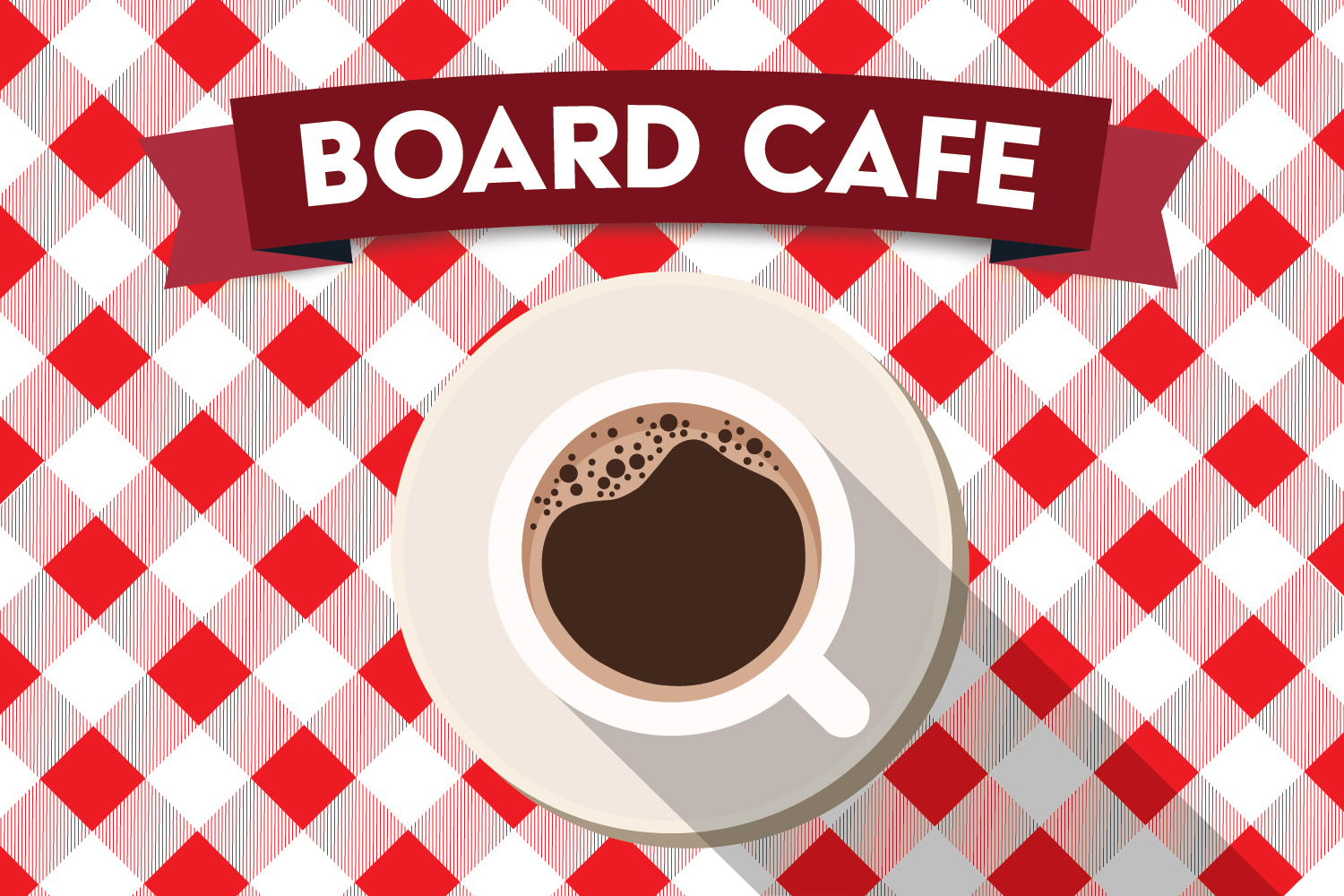Divorce and the Nonprofit Board Member
The story of a nonprofit board member going through the turmoil of divorce. How divorce made it difficult to serve on the board.

When personal issues affect a nonprofit’s board.
Over the course of seven years, I have served on the boards of two nonprofit agencies and on the education committee of a third. I’m a professional academic, with the organizational skills and the flexible schedule that make me valuable as a volunteer leader in the nonprofit sector.
Today I will offer what I would call a case study, if it were someone else. As it’s me, perhaps it would be more honest to call it a partial confession. The second year I served on the board of a regional arts organization, several board member proposed to terminate the group health plan for the four employees. The Affordable Care Act was beginning, and the opportunities for staff to choose seemed to offer cost-saving for the organization.
Staff were weak in arguing for their own benefits, talking about the ways that they were reducing cost by moving from the group plan to Medicare after they reached 65. Promising to decrease costs was not enough.
I dug into the human resources literature and articulated why it was in the best interests of the organization to offer a defined health benefit to its employees: the organization would find better recruitment, better retention, and higher quality work — derived from higher morale and better health.
The vote to retain or eliminate would be close, so I studied Robert’s Rules of Order to make sure I knew the maneuvers to keep the wrong motion off the table and put the right motion forward.
I was going to manifest my beliefs about what employers owe their employees (I am active in my union at work, as well). I was going to ensure that the nonprofit I loved was able to attract the best talent, and I was going to be sure that that talent was healthy, productive, and content. I was going to Do Something Meaningful.
Simultaneously, I endured a separation and a divorce. These events, while personal, conditioned every part of my life, and — no surprise here — they conditioned my service in the nonprofit sector too. In retrospect, the enthusiasm and passion I brought to this fight wasn’t just about healthcare.
If you want to work with solid, effective board members who are surviving this kind of life change in a way effective for your work (as a staff member or fellow board member) and non-damaging for the board member, I have some thoughts and insights to share.
The board member in search of meaning
It’s probably obvious, but someone enduring a divorce is enduring radical, sometimes catastrophic, change.
“Divorced individuals experience a huge psychological shift… Other shifts could include changes in the person’s employment situation, changes in financial assets and security, a move to a new home or city, or changes in social patterns,” according to Rebecca Nesbit in a book on marriage by Judith S. Wallerstein and Sandra Blakeslee. When a divorce begins, there is trouble ahead.
According to the Utah State University Extension service, “For some, divorce seems to set in motion a process in which they end up losing everything — jobs, homes, children, and self-esteem.” Eventually, the person heals: “Fortunately, studies have found that most of these problems — unhappiness, depression, alcohol abuse, etc. — have largely subsided 2-3 years after the divorce.” But for two or three years, you could have a person like me, or worse, on your board.
I started volunteering long before my marriage started to collapse, but research tells us that during and after divorce men experience an increased desire to volunteer. “There is some evidence that divorced men are more likely to volunteer and increase their volunteering hours,” Nesbit tells us. Anyone working with a board must be ready to encounter a person working through a divorce. They may be engaged in a search for meaning through community leadership, to replace the sense of meaning that they lost in their personal life.
Meaning is the key word here. People join boards for many reasons — to network, to advance their career, to fulfill obligations for community service appropriate to their profession, to share and ignite their passions in others. And every nonprofit wants leadership that feels that they have something to contribute and a sense of membership in the organization. But the board member enduring a life transition — divorce, but also unemployment, death or other transformative changes — is seeking meaning to help them work through a shift in their identity.
As I write this, in 2016, it’s been three years since my wife and I separated, and it took me two years, as my therapist pointed out, to “cease living in a way which honored my vows.” Even though my ex-wife had found a new relationship, I was clinging to my old identity as a spouse. When that identity was shaken, I clung harder to the other identities that brought meaning to my life.
Ronnie Schobb describes us building our identities from ourselves as individuals to ourselves as member of a social group and finally as interpersonal relationships. Divorce threatens the social and personal levels of identity. And feeling that you have something to contribute and a sense of membership in the organization is one way to re-orient the social and personal identity away from the gaping, sucking hole where marriage and family used to be.
In my case, in fighting so hard for a better benefits package, I truly had the best interests of the organization in mind. But I was also very consciously constructing a new personal identity, as someone who was an advocate for the staff, as someone who was pushing for a political commitment to health care as an employer’s responsibility.
And, let’s be honest, I wanted to be someone who mattered, who made a difference in the lives of the employees and the organization’s mission.
I was doing the right thing for the wrong reason. Or maybe I was doing the right thing for some of the right reasons, but with some misdirected passion. In the end, I’m happy to say that the right choice was made, and we kept a strong benefits package for the employees. But the passion generated heat instead of light, and could have been managed differently, by me and by the executive director.
How can you handle the board member in search of meaning?
Blue Avocado (especially Board Café) is a great place to look for advice on how to deal with a board member whose energies for work in the organization are no longer only about the organization.
It may be in the best interest of the board member to resign or to request a leave of absence. The board member in question may not realize that it’s in their best interest, and I promise you, a discussion that starts with a discussion of the ways that their divorce or other personal crisis is making them incapable of serving on the board will not end well. But a leave of absence may be welcome — it maintains a meaningful relationship to the organization for the board member, while giving them time to regroup.
Having the discussion is the first step to helping the board member in search of meaning find it in a way that benefits the nonprofit too.
You might also like:
- Bylaws Checklist
- Moving Beyond Performance: Making DEI Actionable
- A Board Member “Contract”
- Can Nonprofit Boards Vote By Email?
- From Passive to Proactive: Strategies to Move Nonprofit Board Members Beyond Meetings and Into Action
You made it to the end! Please share this article!
Let’s help other nonprofit leaders succeed! Consider sharing this article with your friends and colleagues via email or social media.
About the Author
Blue Avocado is an online magazine fueled by a monthly newsletter designed to provide practical, tactical tips and tools to nonprofit leaders. A small but mighty team of committed social sector leaders produces the publication, enlisting content from a wide range of practitioners, funders, and experts.
Articles on Blue Avocado do not provide legal representation or legal advice and should not be used as a substitute for advice or legal counsel. Blue Avocado provides space for the nonprofit sector to express new ideas. The opinions and views expressed in this article are solely those of the authors. They do not purport to reflect or imply the opinions or views of Blue Avocado, its publisher, or affiliated organizations. Blue Avocado, its publisher, and affiliated organizations are not liable for website visitors’ use of the content on Blue Avocado nor for visitors’ decisions about using the Blue Avocado website.








Thanks so much for this, David – it’s probably true for many volunteers, in situations other than divorce as well (empty nest, retiring from professional life) – and goes unaddressed by most.
Volunteers are always getting some personal need filled through the work – your self-reflection and willingness to share underlines how important it is to recognize when meeting our personal needs is outbalancing the organization’s needs.